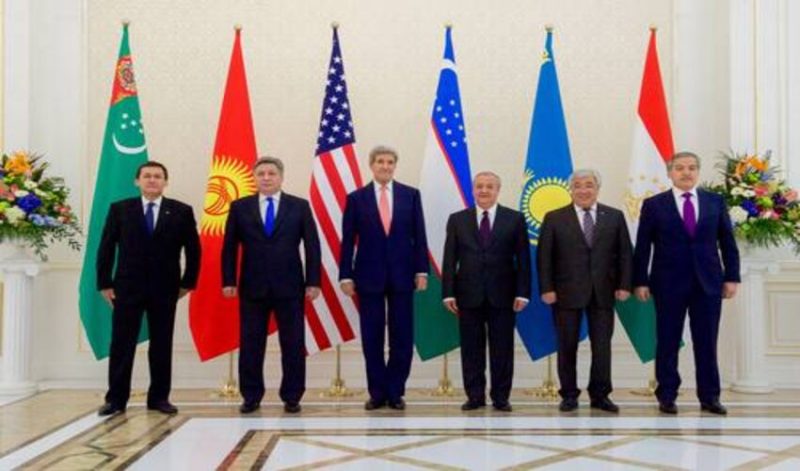
An Overview of Uzbek Politics over The Past Few Years
Mirziyoyev, now elected as the president of Uzbekistan has won 88.6 percent of the vote in a firmly controlled political race on Sunday, turning into the nation’s second-ever president after long-term strongman Islam Karimov passed on.
At 65 years old, Mirziyoyev is the most youthful of the heads of the Focal Asian previous Soviet republics. The Uzbek head of the state is a year more youthful than the Kyrgyz president, Almazbek Atambayev, and simply a month more youthful than the Turkmen chief Gurbanguly Berdimuhamedov, with whom he is most often looked at.
Since the mid-1990s, common liberties activists have been featuring matches between the power framework in Uzbekistan, laid out by Karimov, and the severe system of previous Turkmen President Saparmurat Niyazov, which his replacement Berdimuhamedov has kept up with.
Following both Niyazov’s passing in 2006 and that of Karimov toward the beginning of September this year, the handover of force in the two nations penetrated their separate constitutions. In the two occurrences, the speaker of parliament ought to have assumed control over the obligations of head of state until early races could be held. Be that as it may, in Turkmenistan the workplace was accepted by Berdimuhamedov, who was the appointee top state leader at that point, while Head of the state Mirziyoyev took over in Uzbekistan.
Presently onlookers are asking themselves the way in which Mirziyoyev will manage the character clique of his ancestor, Karimov. Will he follow the case of his Turkmen neighbor Berdimuhamedov, who before long supplanted pictures of Niyazov with pictures of himself? Pundits of the system in Uzbekistan expect that Mirziyoyev will keep up with qualities of the “Karimov framework.”
Mirziyoyev arose out of the Soviet regulatory order framework and is important for the Uzbek nomenklatura, the nation’s power first class. He concentrated on mechanical designing, moved on from the Tashkent Foundation of Water system and Farming Motorization, and functioned as a researcher and secretary of the socialist youth association Komsomol. From 1990 forward, he was a group’s representative in the Preeminent Soviet of Uzbekistan; then, at that point, in 1994, he turned into an individual from the main parliament when the nation acquired its freedom. Afterward, he was the head of organization in the locales of Jizzakh and Samarkand. He became top state leader in 2003.
Akezhan Kazhegeldin is a main master on Focal Asia. Previously the state leader of Kazakhstan, presently a resistance lawmaker, he lives far away, banished for good in the West. He let DW know that, as President Karimov’s top state leader, Mirziyoyev must be totally faithful. ” In this job he was not a tactician; he was, most importantly, a chief. Be that as it may, he knows how the state works. Remembering that the president depended on him for quite a while, we can expect he’ll keep up with the country’s methodology to date: the rule of non-arrangement, consideration regarding both local and worldwide issues, as well as fortifying the economy,” said Kazhegeldin.
He is persuaded that Mirziyoyev is aware of two basic parts of Karimov’s inheritance. From one viewpoint, as far as modernization, Uzbekistan lingers a long ways behind the dynamic nations of the world; in any case, on the other, today is the most grounded country in Focal Asia with regards to the working of state organizations.
Mirziyoyev’s program for the early races contained no unforeseen suggestions. All along, this applicant was introduced to individuals by the power tip top as the reasonable #1. Out in the open, Mirziyoyev seemed to be unassuming. Nonetheless, it was not this that got individuals discussing him, however his job as the “new brush.” He settled on various astounding work force choices, and excused a few nearby regulatory heads. Be that as it may, against assumptions, he left persuasive Money Clergyman Rustam Azimov in office, whom many saw as a potential future president. Azimov is accepted to be all the more favorable to West, though Mirziyoyev is more disposed towards Russia.
“The signs Mirziyoyev and his group are shipping off the West have been gotten with wary idealism, specifically the solicitation to Western political race onlookers and the pardon for political detainees,” said Kazhegeldin. In any case, the Focal Asia master accepts that this might be a sign that Mirziyoyev needs to attempt to modernize the economy and give organizations more prominent opportunity.
As per Kazhegeldin, the Uzbek power situation, laid out over many years, plays directly into Mirziyoyev’s hands in such manner: The state is “available in each edge of the land,” making it conceivable to modernize “from a higher place.” Notwithstanding, Kazhegeldin remarked that with more prominent financial opportunity, individuals would likewise request more prominent legitimate opportunity. This, he said, would be an undeniably challenging second for the Uzbek initiative, acclimated for what it’s worth to tyrant rule.

Aimee Garcia is a senior editor at ReadDive. She has 5+ years of experience in Digital Marketing. She has worked with different IT companies.
